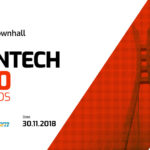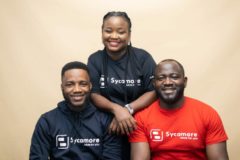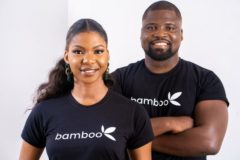We recently reported that Ghanaian ecommerce startup, Ahonya has secured a seed round of funding led by Rio Technology Partners along with Nairobi-based Savannah Fund. In an email interview with TechCabal, Ahonya founder and CEO, Gerard Yitamkey tells us more about the fund-raising process and running an ecommerce startup in Ghana. Also, Ahonya is hiring. Find out more in the Q and A.
Can you describe the process of securing the new investment from Rio Partners? How long did it take and what did you have to demonstrate to show that funding Ahonya was a good move?
Fundraising is tiring, as any entrepreneur who’s attempted to raise funding rounds would tell you. As Mbwana of Savannah fund normally says, ‘soft money’ make you soft.
We met Percy, Managing Director of Rio Partners, at the Savannah Fund’s inaugural demo day last year in Kampala. Percy made it clear to us from the beginning that they were interested in funding Ahonya. It took about four months, from start to finish, to close the round.
Apart from the hard work we put into building Ahonya from day one, we demonstrated our ability to manage cash efficiently, showing exactly where/how the funds from our initial investment from Savannah Fund were used. It was also crucial to demonstrate month-on-month growth since launch – hard numbers were key, not qualitative analysis or fluffy projections.
In the end, I think Ahonya’s significant order volume over the Christmas 2013 season proved the consumer appetite for electronics e-commerce in Ghana, which gave Rio the confidence to invest in the business.
You intend to use the new investment to recruit more talent. How many people does Ahonya currently employ, how many people are you looking to add, and in what capacities/critical positions?
We have 10 team members currently, and outsource only logistics/delivery. We are currently recruiting talent for the marketing (online and offline), business development and customer service business units, and plan to add 10 – 20 staff in the next six months. Those potentially interested in joining the Ahonya team can send their CV to careers@ahonya.com!
In Nigeria, payments and logistics (mostly delivery) are the most visible challenge for ecommerce startups. What are the unique challenges to doing ecommerce in Ghana, and in what ways do you get around those?
Ahonya doesn’t offer Cash on Delivery (COD) yet. Instead, we offer payment options via credit card and bank transfer/deposits. Most customers opt to deposit cash at their bank currently, which is an outdated, old-school method.
With the new capital injection, we plan on rolling out COD payment options for best-selling items. I think delivery in Ghana (Accra) presents less of a challenge than Nigeria (Lagos) because it’s less densely populated than Lagos. We are able to facilitate same-day delivery for most customers in Accra, and 24 to 48 hours for the rest of Ghana.
Could you describe the terms of the Rio deal? How much the founders still own in the company?
We want to keep the terms of the deal confidential, but the founders still own the majority of Ahonya.
Genuine electronics — for Ghana’s population, how big is this market? Any plans to broaden scope?
Ahonya chose to launch with electronics because margins are generally higher and the return rate is lower for electronics compared to fashion products. There’s also higher brand loyalty for electronics products than fashion. Since launch we’ve rolled out fashion categories for men and women, but we see the majority of our order volumes in electronics.
Ahonya’s customer base, and the Ghanaian consumer market as a whole, is growing as more people move online and understand the convenience of buying online versus brick and mortar shops. Providing customers with genuine electronics, not counterfeit products, is required to develop customers’ trust and retain them as returning customers.



















